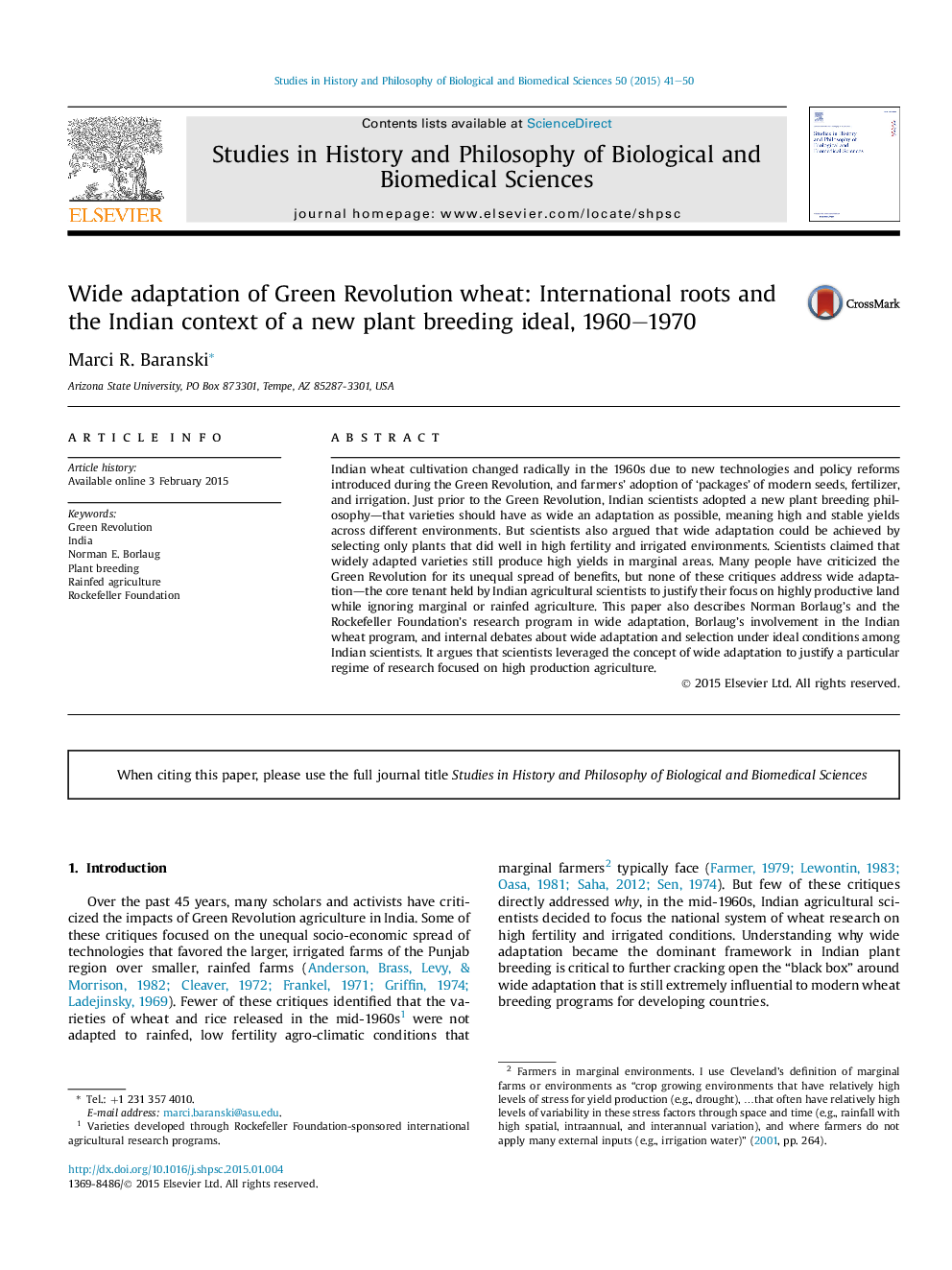| کد مقاله | کد نشریه | سال انتشار | مقاله انگلیسی | نسخه تمام متن |
|---|---|---|---|---|
| 1161166 | 1490515 | 2015 | 10 صفحه PDF | دانلود رایگان |
• Norman Borlaug discovered widely adapted wheat varieties in the 1960s.
• Borlaug introduced ‘wide adaptation’ to the Indian wheat research program.
• Wheat scientists focused on wheat for fertilized and irrigated conditions.
• Historical data shows that semi-dwarf wheat was not widely adapted.
• Borlaug's wheat had a wide range due to photoperiod insensitivity.
Indian wheat cultivation changed radically in the 1960s due to new technologies and policy reforms introduced during the Green Revolution, and farmers' adoption of ‘packages’ of modern seeds, fertilizer, and irrigation. Just prior to the Green Revolution, Indian scientists adopted a new plant breeding philosophy—that varieties should have as wide an adaptation as possible, meaning high and stable yields across different environments. But scientists also argued that wide adaptation could be achieved by selecting only plants that did well in high fertility and irrigated environments. Scientists claimed that widely adapted varieties still produce high yields in marginal areas. Many people have criticized the Green Revolution for its unequal spread of benefits, but none of these critiques address wide adaptation—the core tenant held by Indian agricultural scientists to justify their focus on highly productive land while ignoring marginal or rainfed agriculture. This paper also describes Norman Borlaug's and the Rockefeller Foundation's research program in wide adaptation, Borlaug's involvement in the Indian wheat program, and internal debates about wide adaptation and selection under ideal conditions among Indian scientists. It argues that scientists leveraged the concept of wide adaptation to justify a particular regime of research focused on high production agriculture.
Journal: Studies in History and Philosophy of Science Part C: Studies in History and Philosophy of Biological and Biomedical Sciences - Volume 50, April 2015, Pages 41–50
